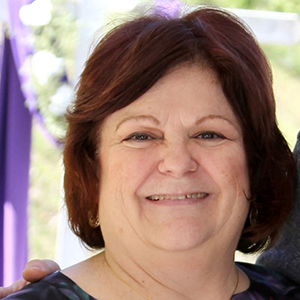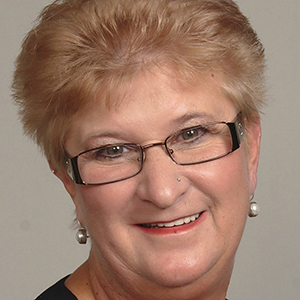In this Article

Do you want to work in healthcare, but you’re not a fan of needles or other hands-on procedures? Medical billing or medical coding might be the perfect alternative for you.
Billers and coders work behind the scenes to connect the dots between the care providers give and the monetary reimbursement for that care. While these professionals need much less education than others in the medical field, they are key to ensuring hospitals and other medical organizations remain successful.
“I love that this field means you can contribute to the healthcare industry if you don’t like blood and guts but are still interested in the medical field,” says Robyn Korn, MBA, RHIA, CPHQ, an adjunct instructor of medical coding at Purdue University Global.
What’s the Difference Between Medical Billing and Medical Coding?
Although people often talk about medical billing and medical coding in the same breath, they are actually two different professions. Medical billing requires less education—in many cases, someone with a high school degree can become a medical biller. On the other hand, you will need additional education and, often, a certificate or credential to secure a good medical coding job.
Medical billers submit claims to insurance companies or other payers. Doing so in an accurate and timely manner ensures providers and hospital systems are paid for the care they provide.
Medical coding is similar in that it is directly related to revenue cycles and the financial health of healthcare organizations. The career requires more in-depth knowledge and responsibilities, though. Medical coders review documentation from providers, such as doctor visit notes, and translate it into codes for reimbursement.
“Coders review medical documentation and convert the narrative into alphanumeric codes, which are used to submit on a bill,” Korn explains.
Some employers hire one person to do both jobs; others, usually larger organizations, hire billers and coders separately.
What Does a Medical Coder Do?
“Medical coding has a big impact on the money coming into a hospital or other healthcare organizations,” Korn says.
Medical coders work on time-sensitive tasks. Their role directly affects cash flow, which means the healthcare organization depends on their work to keep reimbursements coming. Staying on top of the workload ensures providers are paid, supplies stay stocked, and the doors remain open.
Medical coders must be incredibly detail-oriented. It sometimes helps to think of them as detectives or translators. Like a sleuthing agent, they must pick out the most relevant information in the documentation and convert it into accurate codes.
A Day in the Life of a Medical Coder
A medical coder’s work is integral to the functioning of a healthcare organization. On a typical day, a coder will perform these duties:
What Does a Medical Biller Do?
In short, medical billers are responsible for submitting a claim—complete with the accurate codes inputted by the medical coder—to an insurance company or other payer. Billing also entails time-sensitive tasks, since this step is tied to reimbursement for medical care.
A medical biller’s work begins after a coder has done their part. In addition to submitting claims, medical billers follow up on unpaid claims, draw up bills for patients, and work with patients to create payment plans, all to ensure a provider or facility is reimbursed the correct amount.
Medical billers also need to be detail-oriented. They need to look for any potential mistakes, so reimbursement occurs on time. That means billers need a foundational understanding of the coding system used in the facility where they work.
A Day in the Life of a Medical Biller
Medical billers are responsible for the final steps to ensure providers and facilities receive the correct payments. On a typical day, they may:
Can One Person Fulfill Both Roles?
In most cases, different employees fulfill the billing and coding tasks. That said, in some cases, it is possible for someone to work as a biller and a coder.
Small organizations, such as a standalone physician’s office or a small practice, may combine the medical billing and coding positions. Some markets that have a smaller pool from which to hire, such as small and rural communities, may prefer candidates who can fulfill both job descriptions.
Larger organizations, such as hospitals and health systems, keep these positions separate. The division of labor makes sense from the organization’s financial point of view, since billers are typically paid less than coders.
But it doesn’t hurt for coders to also be proficient in billing, Korn says. Earning a certification in medical coding can enable billers to transition careers and increase their pay.
Where Do Medical Billers and Coders Work?
“Any healthcare setting with anything administratively related to the revenue cycle is an opportunity to work as a medical biller or coder,” says Nancy Szwydek, MPH, RN, RHIA, CRAT, CMAC, assistant dean for accreditation at Purdue University Global.
These settings include the organizations you typically associate with healthcare—clinics, standalone doctors’ offices, hospitals, and healthcare systems, to name a few. Other settings, such as long-term care facilities, nursing homes, rehabilitation facilities, and even prison systems, also need professionals to submit claims for reimbursement.
A biller/coder’s day-to-day work is similar in many of these settings. What varies is the specialization you may need. For example, if you work in an oncology department at a hospital, you may need a Certified Hematology and Oncology Coder (CHONC) credential.
Another big difference: Organizations vary in which coding systems they use. “The (certifying agency) American Academy of Professional Coders relates more to coding in a physician’s office or freestanding urgent care clinics,” Korn says. If you’re set on working in a hospital—or you don’t know where you want to work and prefer to keep your options open—”you may want to go the American Health Information Management Association route because it gives exposure to both avenues,” she says.
Can I Work from Home?
The medical billing and medical coding field appeals to many because of the option to work from home. That said, it is a misconception that you can go straight from a coding program to a work-from-home position. “Working from home is definitely a possibility—after a lot of experience,” Szwydek says.
The tasks of a medical biller/coder are much the same whether you work from home or a facility. Other parts of the job differ, though and it’s important to remember that both of these jobs differ from the duties performed by medical transcriptionists or medical records specialists.
If you work remotely, you’ll be even more independent—something that’s attractive to some but sounds isolating to others. You’ll also want to investigate what you need for a home office (supplies, equipment, an office with a door)—and what an employer will provide versus what you buy yourself.
Salary
Medical billers and coders fall into the general category of medical records and health information specialists. The pay for these professions falls within a wide range. Medical billers tend to earn less than medical coders, in part because coders’ tasks are more technical and often require more education or training.
Earnings also vary depending on the setting where you work, the region where you work, how much experience you have, and your title. For example, a coding manager makes more than a medical coder.
Find out what your salary could be as a medical biller and coder in your state
Learn what you may be able to earn in your state, how the cost of living and other factors could impact your pay, why education matters, and much more.
Career Advancement
“There are a lot of opportunities to move forward in your career, but you need to take steps for yourself: Promotions are not going to just fall in your lap,” Korn says. Consider these strategies to advance your career in the medical billing or medical coding field.
- Networking:
- Consider attending trade association meetups or finding groups on social media related to the profession.
- Continuing education:
- “I’m a big proponent of looking at continuing education,” Korn says. “Look for topics that not everyone has done. You will stand out.”
- Certifications:
- Certifications demonstrating your expertise through passing a standardized exam. Coders can earn credentials that demonstrate their overall, general skill (such as Certified Professional Coder, or CPC) as well as specialties (such as the CRHC, or Certified Rheumatology Coder).
- Specialization:
- You can also choose a medical billing/coding niche, such as auditing or risk adjustment. Typically, people gain experience in a more general setting before specializing.
Can I Take Courses Online?
“Online programs are legitimate; I teach in an online coding program!” says Korn. Students can do everything online, from learning how to translate a condition into a diagnosis ID to practicing for speed and accuracy.
When you consider programs, “understand what kind of learner you are,” Korn continues. “Your success in an online program depends on how you learn.” For example, do you do well studying independently, or do you need to see classmates and instructors in person to feel accountable?

Written and reported by:
Catherine Ryan Gregory
Contributing writer

With professional insight from:
Robyn Korn, MBA, RHIA, CPHQ
Adjunct Instructor of Medical Coding, Purdue University Global

With professional insight from:
Nancy Szwydek, MPH, RN, RHIA, CRAT, CMAC
Assistant Dean for Accreditation, Purdue University Global